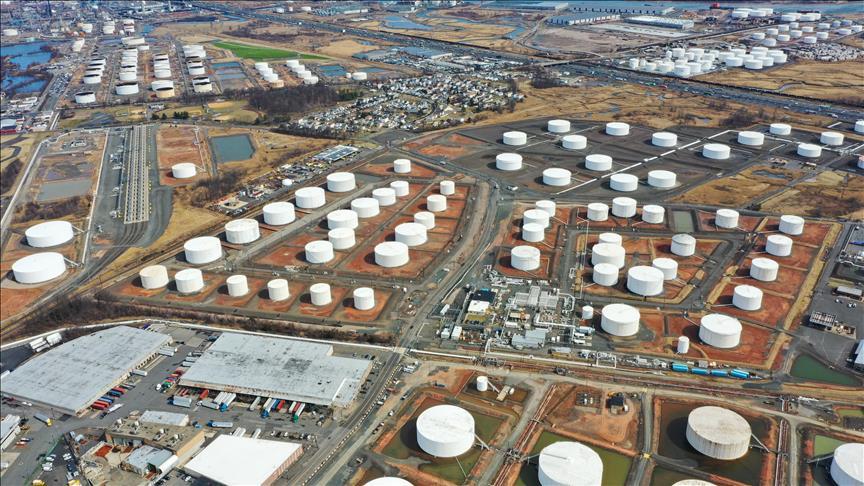

By Anadolu Agency
Oil prices were set for weekly increases during the week ending June 21 amid supply fears driven by tensions in the Middle East and eased demand worries in the world’s largest oil consumer, the US.
International benchmark Brent crude traded at $85.72 per barrel at 3.21 p.m. local time (1221 GMT) on Friday, rising by around 3.75% relative to the closing price of $82.62 a barrel on Friday last week.
West Texas Intermediate (WTI), the American benchmark, traded at $81.35 a barrel at the same time on Friday, an increase of about 3.7% from last Friday’s session, which closed at $78.45 per barrel.
Both benchmarks started the week on a negative note over demand concerns in the US, due to the ongoing uncertainties over the timing of the US Federal Reserve’s interest rate cut.
Experts believe that keeping interest rates at high levels for a sustained period may pose risks to the oil demand outlook.
However, the prices quickly restored as the escalating geopolitical tensions continued to put global energy supply routes at risk.
According to local authorities, a Ukrainian drone attack in southern Russia caused a large fire at an oil terminal in the port of Azov. At the same time, in the Middle East, Israel’s military said Tuesday that it approved plans for an offensive in Lebanon as tensions rise with the Hezbollah group.
Demand uncertainties in the US and China, the world’s largest oil consumers, restricted further price increases.
Data released by the American Petroleum Institute (API) late on Tuesday showed an increase of 2.26 million barrels in US crude oil inventories. The rise in commercial crude oil reserves reflected market perceptions of weakening domestic demand.
Oil refinery production in China decreased for the second consecutive month and fell to the lowest level of the year. According to the National Bureau of Statistics, production fell by 1.8% in May compared to last year.
On Wednesday, Hezbollah Secretary-General Hasan Nasrallah warned that the possibility of an incursion into the Galilee region in northern Israel remains plausible in the event of a war.
Israeli Defense Minister Yoav Gallant said late Wednesday that the situation on the northern border with Lebanon will change either through a political settlement or a wide-scale military operation.
Both benchmarks increased on Thursday to the highest levels since May 1 as supply risk heightened and demand worries eased.
The US, the world’s largest oil-consuming country, showed robust demand when the US Energy Information Administration (EIA) announced on Thursday that commercial crude oil stocks had decreased by approximately 2.5 million barrels last week. Gasoline inventories also decreased by approximately 2.3 million barrels. The drawdown signaled strong demand in support of higher prices.
According to Daniel Hynes, a commodity strategist at Australia and New Zealand Banking Group, signs of stronger demand in Asia also boosted sentiment.
‘Oil refineries across the region are bringing back some idled capacity after maintenance,’ he said in an e-mailed note.
We use cookies on our website to give you a better experience, improve performance, and for analytics. For more information, please see our Cookie Policy By clicking “Accept” you agree to our use of cookies.
Read More